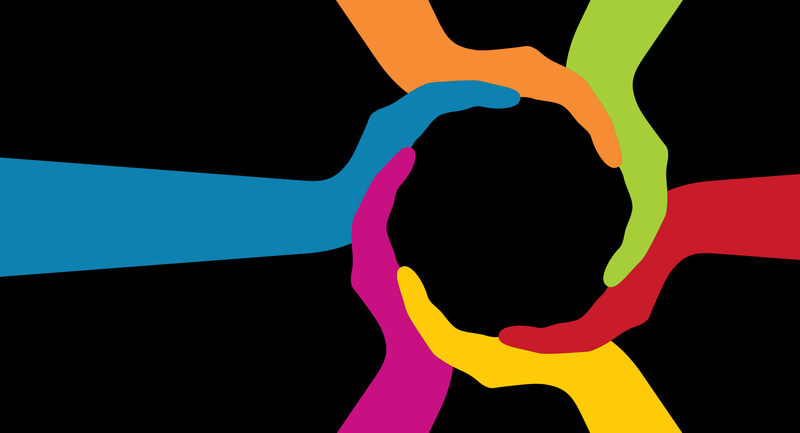What do The Great Gatsby by F. Scott Fitzgerald, The Catcher in the Rye by J.D. Salinger, The Grapes of Wrath by John Steinbeck, To Kill a Mockingbird by Harper Lee, The Color Purple by Alice Walker,Ulysses by James Joyce, and Beloved by Toni Morrison all have in common? These 20th century novels, which are widely considered to be classics, top the list of frequently challenged and banned books.
How do books get banned from a classroom or school library? According to the American Library Association's (ALA) Web site, "A challenge is an attempt to remove or restrict materials, based upon the objections of a person or group. A banning is the removal of those materials. Challenges do not simply involve a person expressing a point of view; rather, they are an attempt to remove material from the curriculum or library, thereby restricting the access of others. As such, they are a threat to freedom of speech and choice."
Typically books are challenged or banned because they contain profane language; contain sexual, racially discriminatory, or violent content; discuss political or religious differences; or are deemed age-inappropriate. But many educators argue that teaching young people content that offers a different or even critical view of society, the government, or religion helps students hone their close reading and thinking skills.
Protecting Students' Right to Read
The National Council of Teachers of English (NCTE) Guideline, called "The Student's Right To Read," states that young people have an inalienable right to read books that offer diverse perspectives on their cultures and communities. Attempts at censorship deprive students of this right. "Censorship leaves students with an inadequate and distorted picture of the ideals, values, and problems of their culture. Writers may often represent their culture, or they may stand to the side and describe and evaluate that culture."
The ALA promotes freedom of speech and advocates for each individual's right to express his opinions even if they are considered unorthodox. The ALA's Library Bill of Rights states that "books and other library resources should be provided for the interest, information, and enlightenment of all people of the community the library serves. Materials should not be excluded because of the origin, background, or views of those contributing to their creation."
For 28 years, the ALA has celebrated freedom of speech during its Banned Books Week, which is organized by the ALA's Office of Intellectual Freedom (OIF). Deborah Caldwell-Stone, acting director of the OIF, explains that the annual event "draws attention to the fact that across the country there are groups and individuals who wish to block access to books because they disapprove of the books' ideas, or opinions, or content in some way."
Promoting Intellectual Freedom
Teaching frequently challenged and banned books is not simply an exercise designed to create controversy. Many of the books in question have been identified as having significant literary and educational value but have been deemed inappropriate by certain parties, such as students, parents, school staff, administrators, or school board members. Teachers should carefully select books for instruction, evaluating their appropriateness based on the students' age, maturity level, and ability to comprehend and discuss complex issues. If educators shy away from topics that raise conflict or promote intellectual freedom, then students may lose valuable opportunities to develop important critical thinking, analytical, and communication skills that will serve them not only in school, but also throughout their adult lives.
"How do we teach kids to think for themselves if we don't promote intellectual freedom in our classrooms, in our libraries, at all times?" asks Caldwell-Stone. "In the United States, of course, we rely on the First Amendment, but intellectual freedom is a human right and a professional ethic that can be applied around the world. When we model the belief that education is a process for learning about truth—which means considering all kinds of ideas, and not indoctrination—I think we reap the benefit with students who are true thinkers and who are going to be better citizens in the long run."
Teaching Challenged and Banned Books
"As a librarian and educator, I think it's important to focus our attention on challenged materials," says Rebecca Blakiston, instructional services librarian at the University of Arizona Libraries. "One of the core values in librarianship is democracy, and one of the key factors necessary in a democracy is an informed citizenry, which requires [that] citizens view and criticize different points of view."
According to Blakiston, To Kill a Mockingbird, a book that has been protested by parents, activist organizations, and others because of its use of racial slurs, is the perfect example of a challenged book that holds extraordinary educational value. "This historical fiction has been described as having the most enduring fictional image of racial heroism known in literature. It also addresses issues of class, courage and compassion, and gender roles in the American Deep South. It will encourage students to think critically about history and race in today's society," says Blakiston.
Blakiston encourages teachers to actively engage students when teaching challenged texts. "Allow students to speak up and critique the work if they like. This encourages critical thinking and allows for a constructive debate. I think transparency and openness is [important]. Students will probably appreciate being treated like adults in this way. If it is a particularly controversial work, it might be interesting to even give the students an assignment where they can critique the views or opinions (or the obscenity, or religious or political ideology) expressed in the work," Blakiston says.
Using these strategies can help address parents' and students' concerns about texts and open up exciting learning opportunities.
Engaging Parents in the Process
Marjorie (Jori) Fox teaches language arts to 7th graders and a "Literacy Specials" course called "Banned Books" to 6th through 8th graders at East Prairie School in Skokie, Ill. Fox says her class provides "a wonderful opportunity for students to get to read banned books in a controlled school environment."
To alert parents about the content their children will be reading in her class, Fox sends home a consent form, explaining that in the course students will "be learning to improve their reading skills" by reading young-adult novels that have been banned for different reasons. In the consent letter Fox states that the course will "address our First Amendment rights to freedom of speech and freedom of the press. Therefore, some material we will discuss and the students may read will be of a mature nature. Some examples of mature topics in the banned books collection include suicide, drugs, magic, sex, prejudices, and religion."
Fox includes her contact information in the letter and encourages parents to contact her with any questions or to request the class reading list in order to read the books with their children and engage them in discussions about the content. She provides parents the choice of opting their child out of the course and notes that an alternative class is available during that time period. Engaging parents early and asking them to participate in the learning process can go a long way in helping children to experience and understand complicated texts, Fox says.
Dealing with Challenges
For a variety of reasons, educators may face challenges to texts; therefore, it's important to have systems and procedures in place for dealing with these protests.
"The first thing to remember is that the parent or the group has a right to express concern," says Caldwell-Stone. "However, in expressing their concern, it does not necessarily mean that they should have a right to dictate what curriculum is taught in the classroom for the entire community," she says.
Caldwell-Stone says that the ALA encourages schools to discuss the material selection policy with complainants, explain why the book was chosen, offer alternative assignments, and also provide the complainant with the means for raising their concerns with another body, which is called a reconsideration process.
"A reconsideration process allows the individual to be heard, allows the book itself to get a fair hearing by appointing a committee—whether it's a faculty committee or a faculty/community committee—to read the book as a whole, to read reviews about the book, and to understand why the book was acquired for the school and make a decision about whether that book is still appropriate," says Caldwell-Stone. She notes that any reconsideration policy should apply equally to complainants inside and outside the building. The written policy should state that the challenged book will stay in the library or classroom until the complaint has been ruled on, says Caldwell-Stone. For this reason, a clear policy that sets a deadline for timely action is imperative.
In a March 2002 interview with District Administration, Pat R. Scales, author of Teaching Banned Books: 12 Guides for Young Readers, explains that when administrators, teachers, and librarians work together, they can create strategies for teaching complex texts.
"Administrators must encourage teamwork and trust their faculty to select books that are age-appropriate and to develop novel units that encourage critical and creative thinking. Teachers know their students best, and [they] should be allowed to adjust novel choices based on the maturity of [each] class," says Scales. "Every school district should
have a book selection policy that everyone follows. Once a decision to use a novel is made, the administrator's job is to support that decision, even in the wake of controversy."
have a book selection policy that everyone follows. Once a decision to use a novel is made, the administrator's job is to support that decision, even in the wake of controversy."








